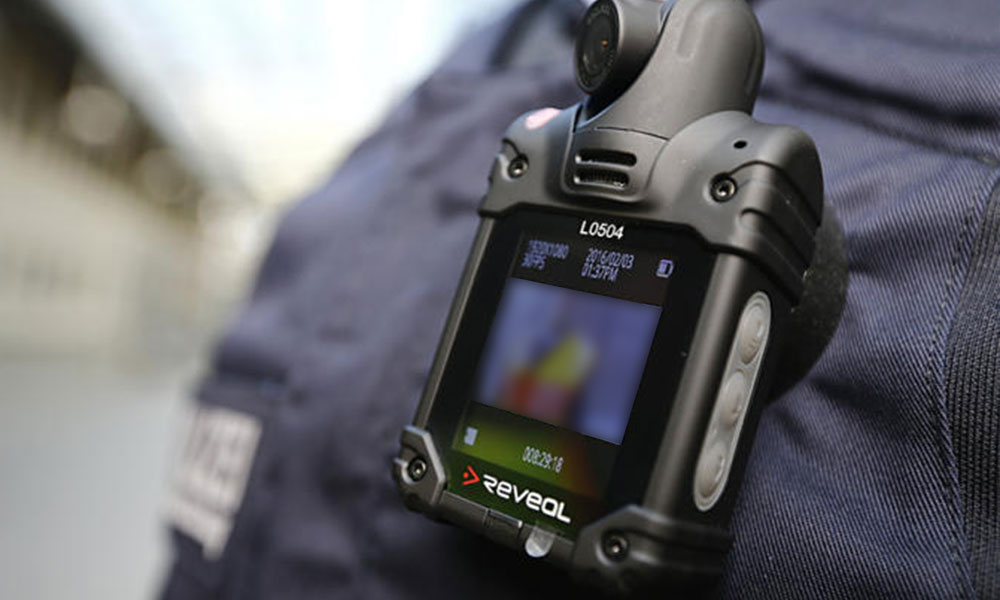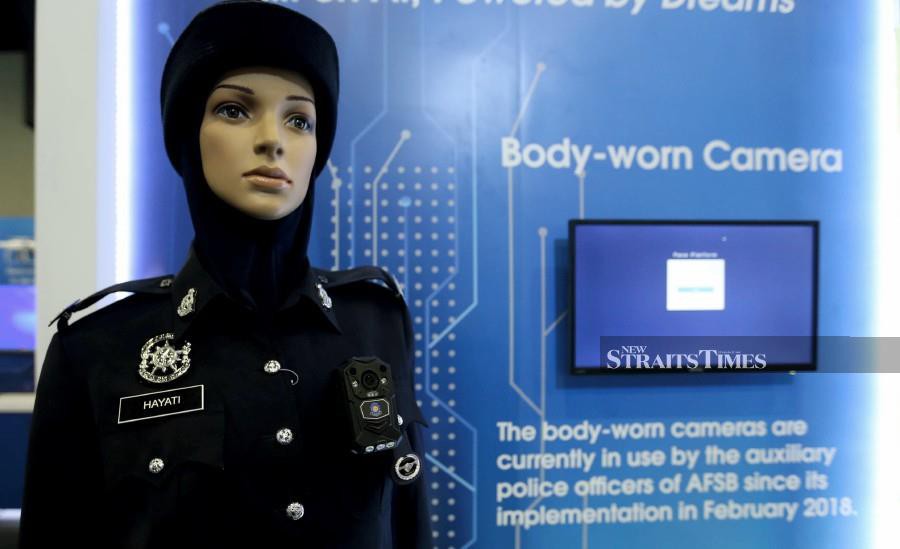CCTVs, body cams for cops good but recording is key - rights group

Human rights group Malaysians Against Death Penalty and Torture
(Madpet) applauds the decision to have police officers don bodycams and
have CCTVs installed in lockups but said the government needs to ensure
such efforts do not go to waste.
"In some previous inquests, where
the victim was found dead in police lock-ups, CCTV evidence could not
be adduced because there were no recordings to tender and the police
officers who were supposed to be monitoring allegedly saw nothing.
"In
other cases, the CCTV was allegedly non-functional. As such, what the
government also needs to provide is sufficient funds to ensure that all
these CCTVs and body-cams are always functioning well.
"Without
recording capabilities, CCTVs, vehicular cams or ‘body cameras’ are of
little use," Madpet spokesperson Charles Hector said in a statement
today.
He
added that the government also needs to ensure that such recordings can
be stored for up to six years which is the current statute of
limitation for civil suits.
He added that body cameras for police
officers and dashboard-mounted cameras for police vehicles are not new
and have already been implemented in many jurisdictions.
"In Hong
Kong, the suspect (who may also later become the accused) and/or his/her
lawyer have a right to get recordings from the point of arrest to
release, which also includes recordings of any police interrogations and
questioning," he said. - Malaysiakini, 21/9/2019
Full media statement - see below
Media
Statement – 21/9/2019
Make sure Police CCTV and Body Cams will Record and records are stored
Malaysia’s Move to Improve Criminal Administration of Justice Applauded
MADPET (Malaysians Against Death
Penalty and Torture) welcomes the Malaysian government’s decision as announced
by Prime Minister Dr Mahathir Mohamad that the ‘nation’s enforcement officers
will be equipped with body cameras to boost efficiency in fighting crime and
combating corruption.’(New Straits
Times, 19/9/2019). This will not only combat corruption and other
abuses of power, but will also enhance the personal security of all enforcement
officers and improve our criminal administration of justice.
It is important that these body
cameras and/or CCTV will record and store the information, which could later be
accessed to be used as evidence in trials and other inquiries, including
inquest, if required, to reveal the truth for even in cases of death in custody
and also police shooting incidents which left people dead.
MADPET is also happy that ‘the
government will allocate RM73mil to install CCTV cameras in all police lockups
nationwide, says Law Minister Datuk Seri Liew Vui Keong.’ (Star, 20/9/2019). It
is hoped that CCTV is installed at every location in police station and other
enforcement agencies’ facilities.
This will also be evidence that
the police followed the law, including Standard Operating Procedures (SOP) and
law in all cases.
CCTV records would have helped
solve the mystery behind the death of political aide Teoh Beng Hock, who was found
dead in 2009 on the fifth floor of Plaza Masalam in Shah Alam several hours
after he was interrogated Selangor MACC at its office on the 14th floor of the
same building.
The body-cams and vehicular cams
would really help in clearing the police of extrajudicial killings including
the recent cases, whereby in one of these cases, where 3 were shot dead, the
family have made complaints to the Malaysian Human Rights Commission (SUHAKAM)
which questions the police version of what really happened.
CCTV had been installed in some
police lockups for some time now, but the problem was that they did not have
recording capabilities, and were used for usually a police personnel to monitor
what is happening in the lockups. In some previous inquests, where the victim
is found dead in police lock-ups, CCTV evidence could not be adduced even in
inquests because there was no recordings to tender, and the police officers who
was supposed to be monitoring allegedly saw nothing. In other cases, the CCTV
was allegedly non-functional.
As such, what the government also
need to provide for is sufficient monies to ensure that all these CCTVs and
body-cams are always functioning well.
Without recording capabilities, CCTV,
vehicular cams or ‘body cameras’ is of little use.
It is important that the
Malaysian government spends money for CCTV and/or body cameras with recording
capacity, whereby these records shall be stored for at least 6 years, or more
if investigations are still open or the case are still in courts. 6 years is
proposed because it is the current limitation for civil suits, noting that a
person arrested could also be assaulted or even killed by a civilian, not just
some enforcement officer.
It must be pointed out that the
use of ‘body cameras’ are already happening in many jurisdictions. Cams are
also mounted on enforcement vehicles.
In many workplaces, in the
private sector, CCTV are installed to monitor the workplace. The question of
invasion of privacy does not arise, more so since we are talking about public
servants.
In Hong Kong, the suspect(who may also later become the
accused) and/or his/her lawyer have a right to get recordings from the point of
arrest to release, which also includes recordings of any police interrogations
and questionings.
MADPET thus urges the Malaysian
government to install CCTVs at all locations in police stations and enforcement
offices, including interrogation rooms, and not simply limit it to lock-ups;
MADPET reiterates the call for
speedy Inquest into all deaths caused by alleged extrajudicial killings by
police or other enforcement agencies;
MADPET also calls for the
enactment of laws with deterrent sentences for crimes committed by the police
and/or other enforcement officers for their actions/omissions can seriously
impact the administration of justice and also human rights; and
MADPET also calls on the
Malaysian government to continue to better and improve public perception of the
administration of justice in Malaysia.
Charles Hector
For and on behalf of MADPET(Malaysians
Against Death Penalty and Torture)

Enforcement officers to be equipped with body cameras, says PM

(file
pix) The nation’s enforcement officers will be equipped with body
cameras to boost efficiency in fighting crime and combating corruption.
NSTP/MOHAMAD SHAHRIL BADRI SAALI
PUTRAJAYA:
The nation’s enforcement officers will be equipped with body cameras to
boost efficiency in fighting crime and combating corruption.
Prime Minister Tun Dr Mahathir Mohamad said enforcement personnel who would use body cameras included police, and Customs and Immigration personnel.
“The country is experiencing revenue leakages of between RM3 billion and RM5 billion at the nation’s entry points yearly, due to integrity problems of officers and a lack in state-of-the-art technology,” he said after chairing the Special Cabinet Committee on Anti-Corruption (JKKMAR) meeting at Perdana Putra.
“We had agreed with suggestions to improve things, including using technology in the Customs Department operations by setting up a one-stop control centre, monitoring using closed circuit television (CCTV) and adding more scanners with Artificial Intelligence technology as well as operation aid equipment.
“We want to use more cameras and one of these cameras is the body camera.
“We want to implement it as soon as possible. We have the budget for them.
“We will give priority to body cameras and CCTV.”
Dr Mahathir said body cameras and CCTV could help to determine whether accusations made against enforcement officers were based on facts.
He said more CCTVs would be installed at locations such as lock-ups to boost transparency and prevent misconduct resulting in custodial deaths.
Dr Mahathir said JKKMAR had taken note of requests for additional manpower from certain departments, including police and the Immigration Department.
“We currently have too many civil servants of more than 1.7 million.
“We are finding ways to shift those already on our payroll to areas with important tasks.
“We can’t add too many new staff as we don’t have enough money for it,” Dr Mahathir said adding that the upcoming budget must reflect the government’s need to provide technology and extra manpower to certain departments.
He said more effort must be put into fighting corruption.
“Since we came to power for the past 16 months, the Special Cabinet Committee on Anti-Corruption has met almost every month.
“Such a meeting is extremely important because corruption problems are not being reduced significantly.
“There are still many reports being lodged which must be investigated and looked at as to determine what is still lacking and what needs to be done to further improve things.”
Dr Mahathir said the important decisions reached by JKKMAR included allowing the Public Service Department to continue formulating the Public Services Act to improve integrity and governance among civil servants while executing their duties without any worries about favouritism, stress and threats.- New Straits Times, 19/9/2019
Prime Minister Tun Dr Mahathir Mohamad said enforcement personnel who would use body cameras included police, and Customs and Immigration personnel.
“The country is experiencing revenue leakages of between RM3 billion and RM5 billion at the nation’s entry points yearly, due to integrity problems of officers and a lack in state-of-the-art technology,” he said after chairing the Special Cabinet Committee on Anti-Corruption (JKKMAR) meeting at Perdana Putra.
“We had agreed with suggestions to improve things, including using technology in the Customs Department operations by setting up a one-stop control centre, monitoring using closed circuit television (CCTV) and adding more scanners with Artificial Intelligence technology as well as operation aid equipment.
“We want to use more cameras and one of these cameras is the body camera.
“We want to implement it as soon as possible. We have the budget for them.
“We will give priority to body cameras and CCTV.”
Dr Mahathir said body cameras and CCTV could help to determine whether accusations made against enforcement officers were based on facts.
He said more CCTVs would be installed at locations such as lock-ups to boost transparency and prevent misconduct resulting in custodial deaths.
Dr Mahathir said JKKMAR had taken note of requests for additional manpower from certain departments, including police and the Immigration Department.
“We currently have too many civil servants of more than 1.7 million.
“We are finding ways to shift those already on our payroll to areas with important tasks.
“We can’t add too many new staff as we don’t have enough money for it,” Dr Mahathir said adding that the upcoming budget must reflect the government’s need to provide technology and extra manpower to certain departments.
He said more effort must be put into fighting corruption.
“Since we came to power for the past 16 months, the Special Cabinet Committee on Anti-Corruption has met almost every month.
“Such a meeting is extremely important because corruption problems are not being reduced significantly.
“There are still many reports being lodged which must be investigated and looked at as to determine what is still lacking and what needs to be done to further improve things.”
Dr Mahathir said the important decisions reached by JKKMAR included allowing the Public Service Department to continue formulating the Public Services Act to improve integrity and governance among civil servants while executing their duties without any worries about favouritism, stress and threats.- New Straits Times, 19/9/2019




No comments:
Post a Comment